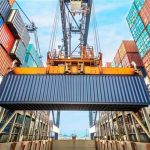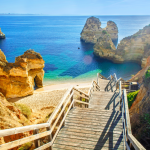Russia’s pointless war – how long will it take to realise that Ukraine is not part of Russia?
Text: David Sampson/Photo: Ministry of Defence of the Russian Federation
The first time I saw war on TV was in 1947\8 when I watched the shooting in Jerusalem between Arabs and Jews. I have vague memories of the bombing of London in the Second World War, but nothing can prepare us now for the horrors of cities being bombed and war returning to Europe. I have always been conscious of how lucky I have been to grow up in a time of peace where emigration was my choice and not a forced evacuation in time of war or persecution.
Putin is a dictator in the old mould. He is a bully and will interpret any concessions as a sign of weakness. The only way to resist him is to stand up to him. In the 1930s the democracies of Western Europe failed to react strongly when Hitler tore up treaties and then used the tactic of immediately offering a new treaty. One of the best descriptions of the danger of thinking that a dictator can be allowed to get away with a local war was given by Maisky, the Russian ambassador in London, in March 1936 after Hitler took back the Rhineland. Maisky said, “I know that there are people who think that war can be localised. These people think that, given definite agreements, war may break out in (shall we say?) the East or South East of Europe, but can pass by without affecting the countries of Western Europe…This is the greatest of delusions…Peace is indivisible.”
We have to recognise that Putin may not want to stop in Kiev. His essay on the history of the Ukraine and his public lecture to his staff justifying Russia´s claims to the Ukraine have become well known and need to be countered. All the realignments of borders in Europe after 1918, 1945 and 1989 have helped sow the seeds of further conflicts. Putin is voicing long standing Russian resentments and fears that post Gorbachev the West has encroached too far on Russian interests in Central Europe. The Russian view is that NATO and the EU have both advanced eastwards despite earlier American assurances that they would not involve the former Warsaw Pact countries. His aim is to reopen the post cold war settlement with a buffer zone of client states around Russia´s Western borders, a weakened NATO and real influence for Moscow over security arrangements in Europe as a whole.
After the fall of the Berlin Wall western leaders were conscious of the need to help Russia manage the dissolution of the Soviet Union, but they were also keen to welcome the countries of Eastern Europe into the democratic community. The record of the commitments given at the time is contested. Russian spokesmen quote an undertaking given by US Secretary of State George Baker to Gorbachev in early 1990 that ‘there would be no extension of NATO’s jurisdiction….one inch to the East.`
In the opinion of Peter Ricketts, former head of the UK Foreign Office, that was a comment made purely in the context of negotiations over the reunification of Germany. Baker was referring to new NATO infrastructure in the old East Germany, and the reunified Germany respected that commitment. “Scholars who have combed through the files are clear. There never was any NATO commitment not to expand to former member states of the Warsaw Pact”.
Ukraine was freed from Polish overlordship in the 17th century and was conquered by the Russians in the 18th century. In 1863 an edict declared that there was no Ukrainian language, merely a dialect of Russian. Putin conveniently forgets the savage civil war fought in the Ukraine after 1918, and the deaths under Stalin, from starvation and deportation, of an estimated of 14.5 million Ukrainians. There are also neo-Nazis among the Ukrainians but there is no doubt that more than 90% of the population outside of the newly declared independent republics in the Eastern Ukraine support independence from Russia.
What will happen now?
The EU member states will have to steel themselves to living with a hostile Russia. This means increased defence spending, years of investment to reduce dependence on Russian energy and much tougher controls on Russian access to markets and technology. London`s need to cooperate with the EU is obvious and action against Russian assets and influence needs to match its rhetoric.
It is tragic that the warped vision of one man could impose such an unnecessary war on Russiaֿ s neighbour, on his own country and on our continent. We are going to live with he results for a long time to come. Many are suspicious that the West has provoked Russia, but I doubt whether anything it has done can be used to justify invasion.










